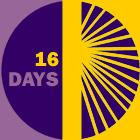
I have long suffered from a tendency toward
white knight syndrome, or wanting (subconsciously and consciously) to be somebody's knight in shining armor. As a feminist guy, it's actually a pretty easy default to slip into--when one is taking close looks at the world regarding how women are treated in the workplace, how much violence toward women is perpetuated by men, and the ways in which many women (and men!) are trapped, to various degrees, by rigid gender roles, it's disturbingly easy to see oneself as the Bringer of Logic and Reason, as The Hero, even as The Guy Who
Gets It. Boys are taught that this is part of their job, of course, so it's not a huge surprise that this is something I have had to guard against in myself for a good deal of my life.

We all need to be rescued, from time to time. That's what friends, lovers and family are for, in part. Our social networks are also, to some degree, our rescuers, our safety nets. There's no shame in wanting to help people, or needing some help, gender be damned. However, men are trained from boyhood that they not only need to tend to their own needs, but they must
rescue those women who need saving. They are also often taught that women are going to need a lot of saving, because they aren't as strong as men, or as resilient, or as brave, etc. This all sounds really heavy-handed and sort of silly, but you can see how pervasive this mindset is when you find men who identify as feminists who still have trouble not seeing themselves as saviors of a sort. (There are other ways of suffering from 'white knight' syndrome, of course, not the least of which is white folks coming into the spaces of people of color and telling them how bad they have it, and how to fix things, just as a for-instance.)

One key to overcoming this sort of behavior is to better recognize women as just as strong, independent and powerful as men. Overly simple, perhaps, but I find myself having to be reminded of it, because the training is pretty deeply-rooted, again and again. But it's not only the training; it's also the self-fulfilling nature of certain gender norms. It is a fact of the world that women get raped more than men get raped. How easy is it to go from that fact to an idea that a particular woman, or women in general, need to be protected, and protected by men? Of course, women
do need to be protected--but they need to be protected as
people, just as we all need some protection sometimes. Men have to be protected, too--much violence done in the world is violence against men, by men. And, of course, there are men (and boys) who need to be protected from women--this isn't always the main focus of such discussions, but
that it happens warrants that we take it into account as well. So we
all need some protection, sometimes. Do any of us need a knight in shining armor? Not generally. We need safety nets, we need places to heal, we need safe places to work, to love, to live. Individual white knights aren't likely to help in that regard--but men (and women, and people of all genders) who take action against violence, who create safe spaces for everybody, who recognize that independence can best happen when there are others we depend upon, and when others depend upon us; people who can recognize these things, and take action around them, are the people who we need most.
(Note: I do, on the other hand, really, really need to be rescued by Cate Blanchett riding up on a white horse wearing a suit of armor. So if you see her wandering around, send her my way. Thank you.)
































